Spring 2018 membership meeting minutes
Health Advisory Council
Fourth Annual Spring Membership Meeting
June 27, 2018
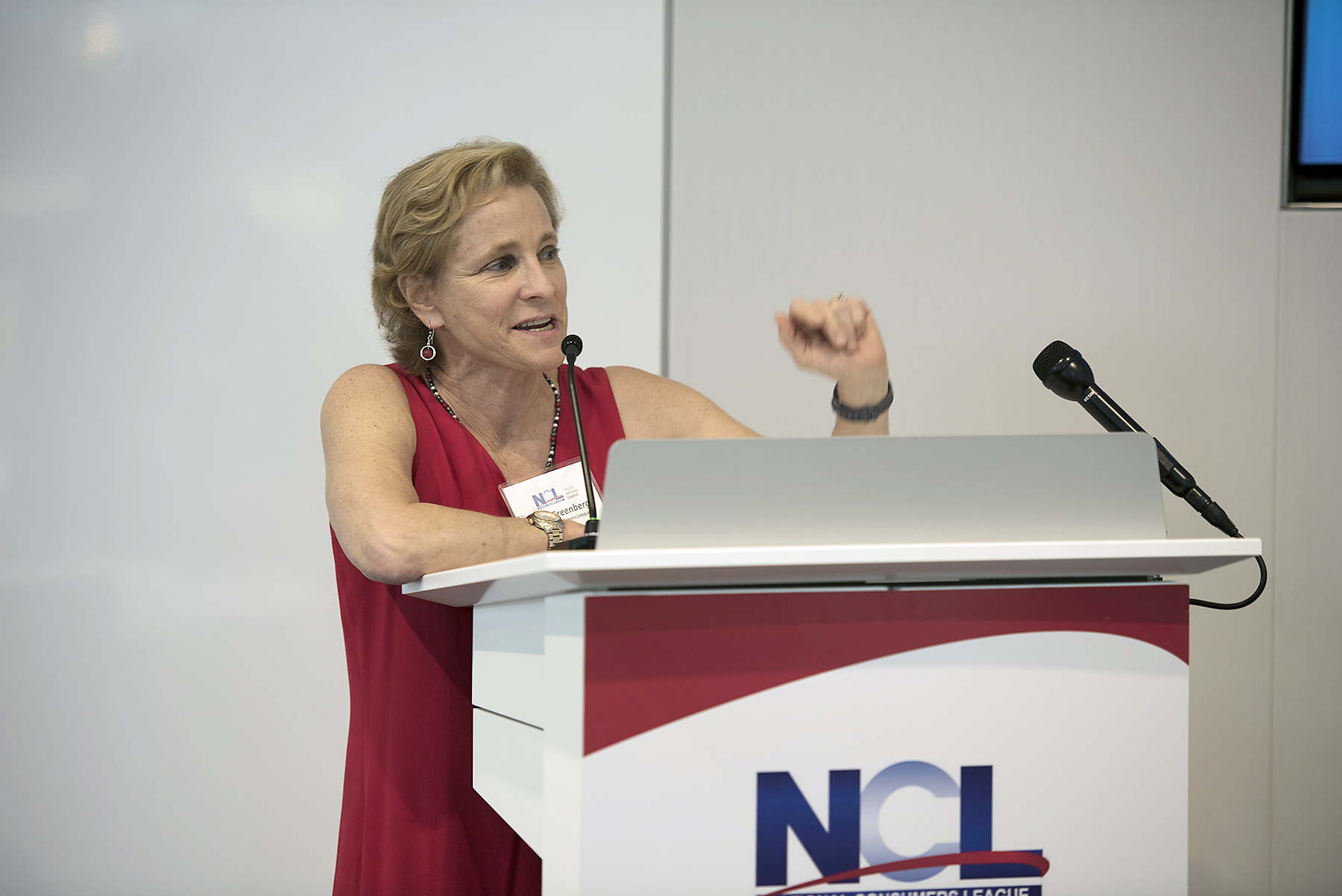
Welcome and overview: Sally Greenberg, Executive Director, National Consumers League
Sally Greenberg welcomed attendees to the Fourth Annual Spring Membership Meeting of the Health Advisory Council. Greenberg thanked the Members of the Council for their support, engagement, and enthusiasm. She then turned the program over to Janay Johnson, NCL’s Health Policy Manager, who introduced the distinguished panel of experts.
Counterfeit and Substandard Drugs Panel (watch video here)
The following panelists made presentations and answered questions from Council Members about the threat of counterfeit drugs:
- Moderator: Janay Johnson, Health Policy Manager, National Consumers League
- George M. Karavetsos, Partner at DLA Piper and former Director of FDA’s Office of Criminal Investigations
- Matthew Rubin, Advisor, Faegre Baker Daniels Consulting and Advisor, Alliance for Safe Online Pharmacies (ASOP Global)
- Gertrude “Gg” Levine, .Pharmacy Registry Operations Manager, National Association of Boards of Pharmacy
- Anthony Lakavage, J.D., Senior Vice President, Global External Affairs, USP
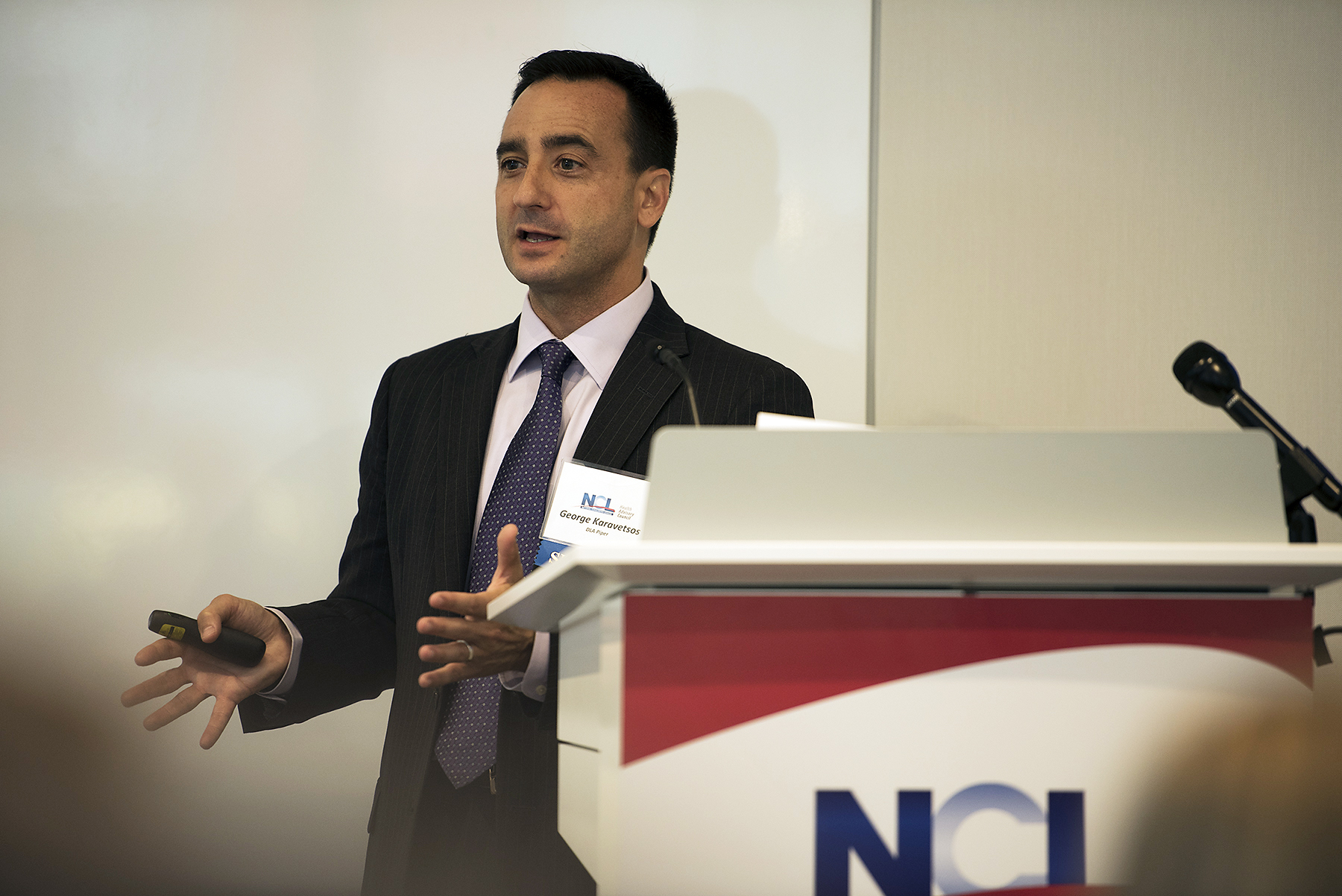 George Karavetsos, Former Director of FDA’s Office of Criminal Investigations, kicked off the panel by discussing the increasing threat of counterfeit drugs and the importance of consumer and healthcare provider education. Karavetsos explained that the opportunity for counterfeit drugs to enter the U.S. market has increased for a number of reasons:
George Karavetsos, Former Director of FDA’s Office of Criminal Investigations, kicked off the panel by discussing the increasing threat of counterfeit drugs and the importance of consumer and healthcare provider education. Karavetsos explained that the opportunity for counterfeit drugs to enter the U.S. market has increased for a number of reasons:
- the global drug supply chain has become more complex;
- illegal online pharmacies have fueled a global counterfeit drug market;
- it is hard to detect counterfeit drugs; and
- counterfeit drugs have high profit margins and a favorable risk-benefit analysis for counterfeiters.
As a result, Karavetsos said that a flood of counterfeit and dangerous unapproved drugs arrive at International Mail Facilities (IMF) daily. Unfortunately, FDA does not have sufficient personnel to stop the flow of counterfeit drugs at IMFs, as the agency only employs 22 inspectors with responsibility for all 9 IMFs.
All is not lost, however. Karavetsos recommended that the following 5 strategies be implemented in order to stop the flow of counterfeit and unapproved drugs from entering the U.S.:
- Enhance coordination and collaboration with foreign regulatory and law enforcement partners to proactively investigate and dismantle transnational criminal organizations;
- Educate medical practitioners and consumers about the dangers of ordering medications from illegal “Canadian” and other foreign internet pharmacies;
- Increase inspectional resources at International Mail Facilities;
- Utilize innovative technologies to detect counterfeit drugs; and
- Enact new legislation that will provide FDA regulators the legal authority to destroy counterfeit and unapproved drugs onsite.
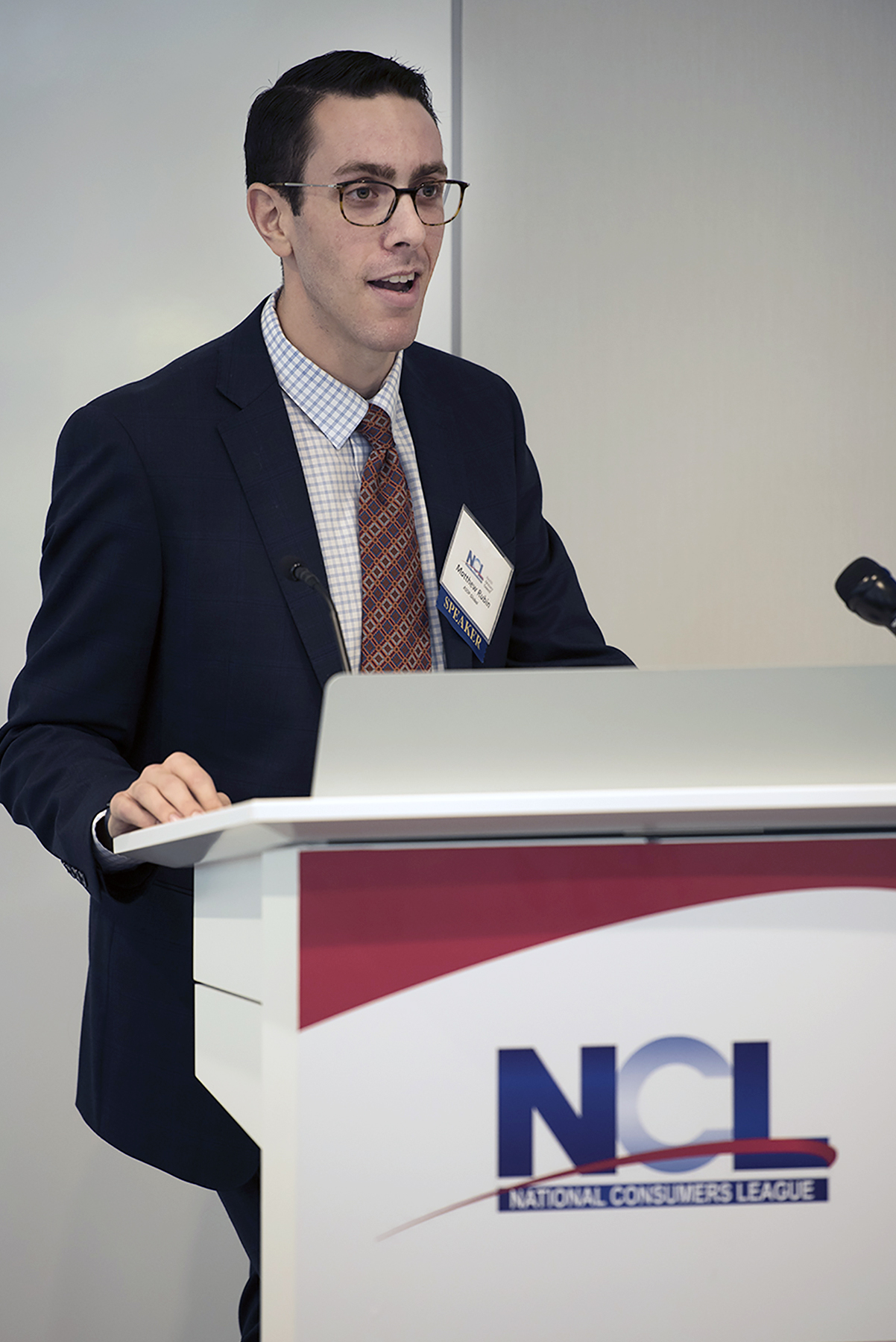 Matthew Rubin, Advisor to the Alliance for Safe Online Pharmacies (ASOP Global), gave an overview of ASOP Global’s work to combat illegal online pharmacies and counterfeit drugs. Rubin explained that at any given time, there are around 35,000 active online pharmacy websites – approximately 97% of which do not comply with applicable laws and pharmacy standards. Counterfeit drugs sold by illegal online pharmacies are often manufactured in unsafe conditions; contain little or no active ingredients; and/or are manufactured using dangerous and sometimes deadly substances. Rubin noted that online drug sellers can make between $1 – $2.5 million in sales each month.
Matthew Rubin, Advisor to the Alliance for Safe Online Pharmacies (ASOP Global), gave an overview of ASOP Global’s work to combat illegal online pharmacies and counterfeit drugs. Rubin explained that at any given time, there are around 35,000 active online pharmacy websites – approximately 97% of which do not comply with applicable laws and pharmacy standards. Counterfeit drugs sold by illegal online pharmacies are often manufactured in unsafe conditions; contain little or no active ingredients; and/or are manufactured using dangerous and sometimes deadly substances. Rubin noted that online drug sellers can make between $1 – $2.5 million in sales each month.
Good work is underway, but more needs to be done to protect consumers from illegal online pharmacies and counterfeit drugs. To find safe online pharmacies, consumers can use the National Association of Boards of Pharmacy’s .Pharmacy Verified Websites Program. Consumers can also check the legitimacy of a website at http://www.LegitScript.com. ASOP Global looks forward to continuing to work with its partners to educate consumers and healthcare providers about how to stay safe and save money when buying prescription drugs.
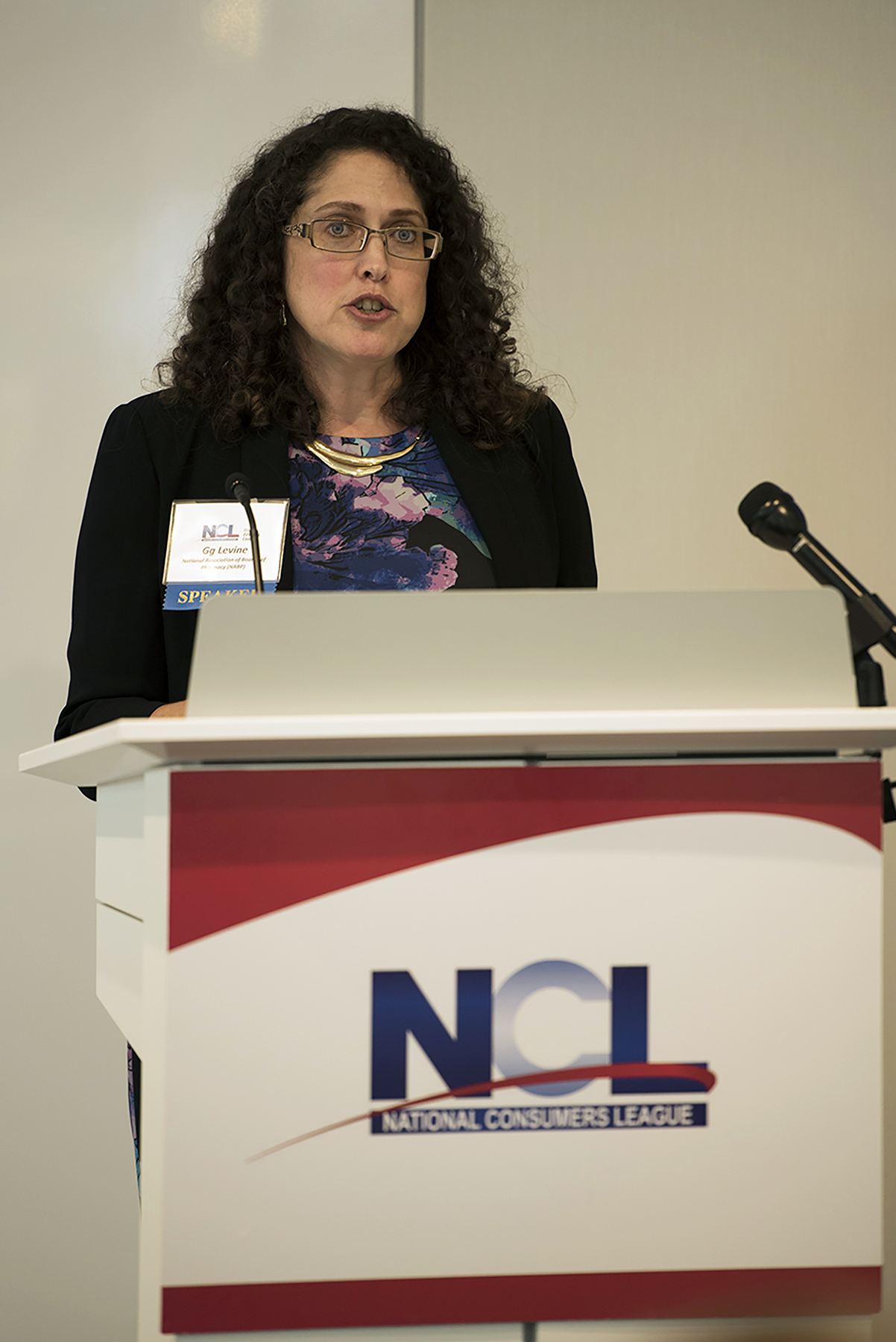 Gertrude “Gg” Levine, .Pharmacy Registry Operations Manager, National Association of Boards of Pharmacy (NABP), gave an overview of NABP’s .Pharmacy Verified Websites Program. The .pharmacy domain creates a safe online space where consumers can be sure the medicines, services, and information they obtain are legitimate and trustworthy. NABP pre-verifies that .pharmacy registrants are appropriately credentialed to dispense prescription drugs or provide related information and resources. Applicants are assessed for compliance with 10 core safety standards: Licensure; Prior discipline; Location; Validity of prescription; Legal compliance; Privacy; Patient services; Website transparency; Domain name registration; and Affiliated websites. Unlike verification sites and certification badges, the .pharmacy “seal of approval” is built into the web address and cannot be faked. It is easy for consumers to spot a legitimate website by “looking to the right of the dot.” Currently, more than half of all brick-and-mortar pharmacy stores in the US service .pharmacy-verified websites. In addition, search engines, credit card companies, social media, and resource sites look to .pharmacy to mitigate risk. Ultimately, NABP aims to see widespread usage of the .pharmacy domain across the industry, as a sign of credibility and security for consumers.
Gertrude “Gg” Levine, .Pharmacy Registry Operations Manager, National Association of Boards of Pharmacy (NABP), gave an overview of NABP’s .Pharmacy Verified Websites Program. The .pharmacy domain creates a safe online space where consumers can be sure the medicines, services, and information they obtain are legitimate and trustworthy. NABP pre-verifies that .pharmacy registrants are appropriately credentialed to dispense prescription drugs or provide related information and resources. Applicants are assessed for compliance with 10 core safety standards: Licensure; Prior discipline; Location; Validity of prescription; Legal compliance; Privacy; Patient services; Website transparency; Domain name registration; and Affiliated websites. Unlike verification sites and certification badges, the .pharmacy “seal of approval” is built into the web address and cannot be faked. It is easy for consumers to spot a legitimate website by “looking to the right of the dot.” Currently, more than half of all brick-and-mortar pharmacy stores in the US service .pharmacy-verified websites. In addition, search engines, credit card companies, social media, and resource sites look to .pharmacy to mitigate risk. Ultimately, NABP aims to see widespread usage of the .pharmacy domain across the industry, as a sign of credibility and security for consumers.
In addition to .pharmacy, Levine also mentioned the formation of the Fentanyl Council, a joint project of the National Association of Drug Diversion Investigators (NADDI), the Partnership for Safe Medicines (PSM), and NABP, created to raise awareness of the dangers of counterfeit drugs laced with fentanyl.

Anthony Lakavage, J.D., Senior Vice President, Global External Affairs, USP, discussed USP’s work to ensure quality medicines. Data suggest that 1 in 10 medicines circulating in lower/lower-middle income countries are substandard and falsified. These poor quality medicines are a threat to families, countries, and global health progress. USP helps to combat substandard and fake medicines by developing quality standards; strengthening quality systems around the world; advocating; convening regulators and patient, disease, and other groups; and building a movement for quality medicines. To combat anti-microbial resistance (AMR), USP has been working to elevate existing evidence on the link between poor quality and AMR, and advocate for investment in quality assurance as a solution.
To help prioritize medicine quality globally, USP recently launched its Medicines We Can Trust Campaign, which is built around the principle that everyone should have access to medicines they can trust – as a right, not a privilege. The campaign will focus on the impact of poor quality medicines on people; engage patient, consumer, and disease advocacy groups; raise awareness and urgency; and inspire collective action. Lakavage invited Health Advisory Council members to join USP’s efforts by becoming official supporters of the campaign.
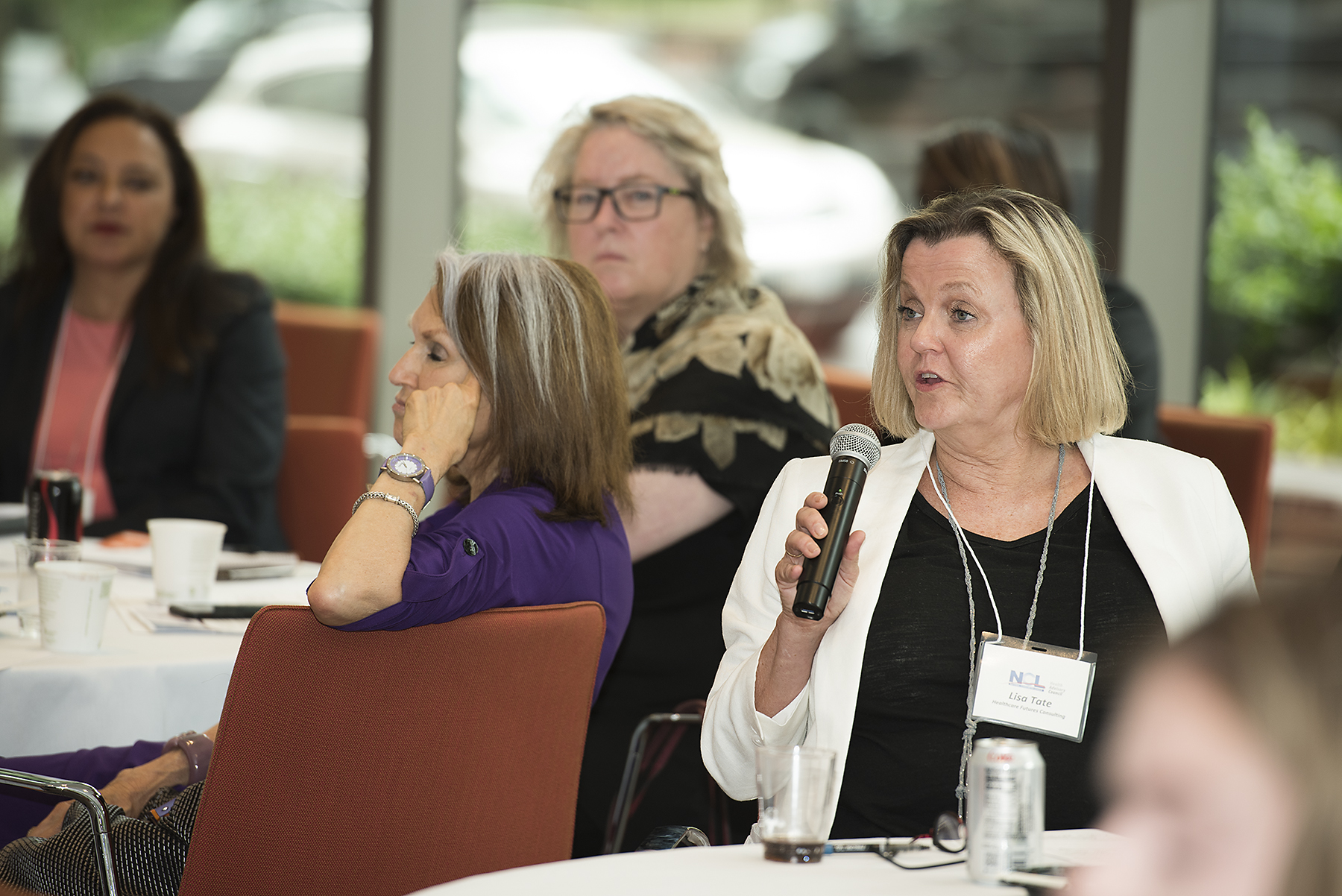
Q&A and discussion
Importation legislation
In response to a question about Senator Sanders’ legislation to allow the importation of drugs from Canada, George Karavetsos said that the concept is “flawed at its core.” As he had noted during his presentation, Canadian authorities are not regulating prescription drugs exported to the U.S., and the FDA, CBP, and FBI do not have the resources to stop the flow of unapproved and counterfeit drugs purporting to come from Canada. Recognizing this fact, no HHS Secretary or FDA Commissioner has certified that importation from Canada is safe.
Getting the word out about the risks of counterfeit drugs
In response to a question about the most important thing that can be done to protect the public from counterfeit drugs, the panelists agreed that consumer and healthcare provider education is key. As George Karavetsos noted, “we should all be sounding the alarm.” Consumers and healthcare providers need to be aware of the risks of counterfeit drugs and how to stay safe when purchasing medications online.
The panelists agreed that there is no magic bullet to addressing the problem. Rather, a number of strategies need to be implemented to lessen the threat of counterfeit drugs. It is going to take a team effort.
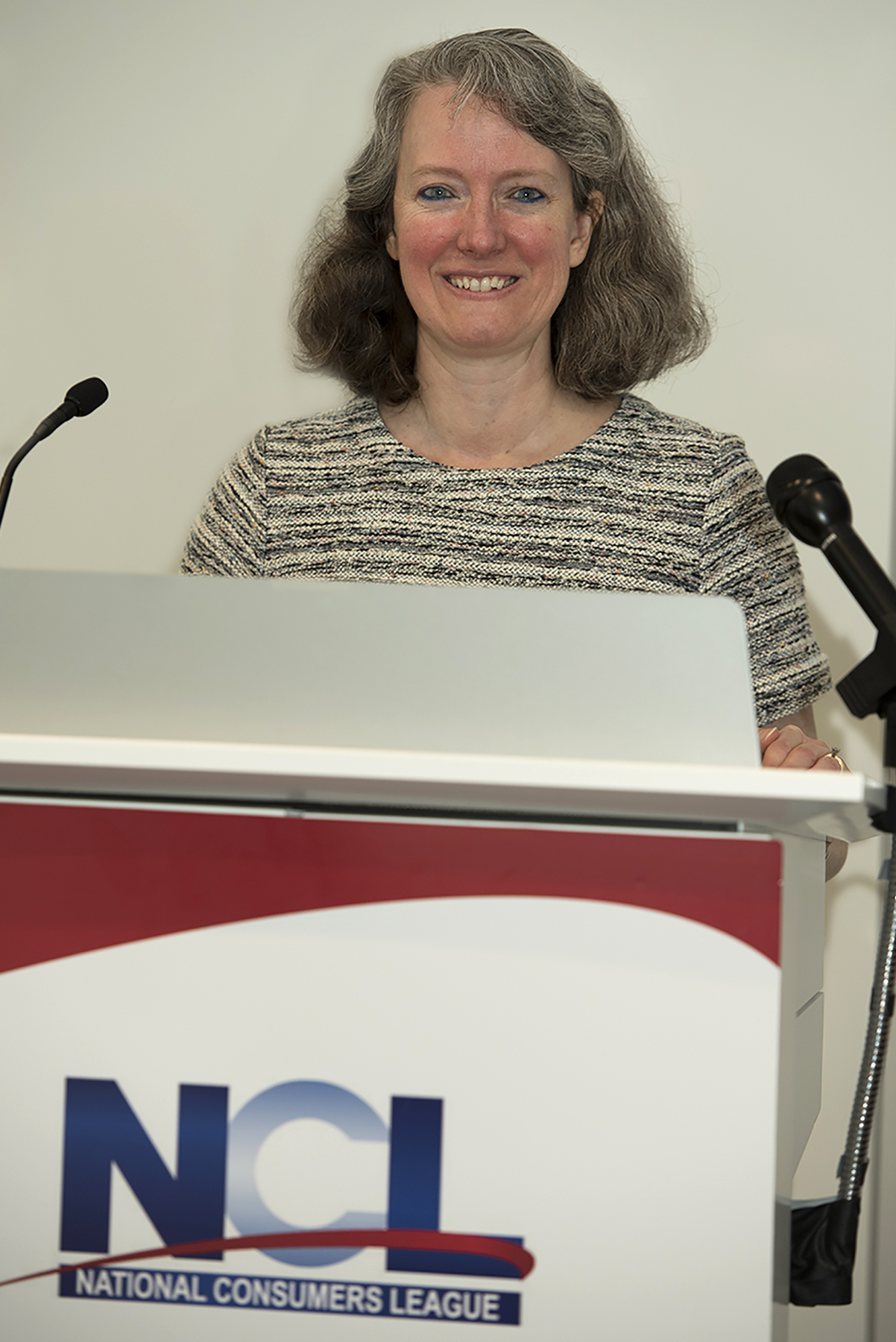
National Consumers League’s health program priorities: Karin Bolte, Senior Director, Health Policy, National Consumers League
Following the panel discussion, Karin Bolte gave an overview of NCL’s health programs and policy priorities. NCL carries out its health policy work through research, education, advocacy, and convening. NCL’s key priorities are:
- Ensuring access to quality affordable healthcare, including working to protect the Affordable Care Act, supporting the FDA, and working in partnership with numerous organizations to improve healthcare quality and patient-centricity.
- Advocating for safe and appropriate use of medicines, including medication adherence, vaccines, safe use and disposal of medicines, compounded drugs, and counterfeit drugs.
- Helping consumers to navigate the health care system, including improving healthcare provider-patient communication, promoting health literacy, and improving health care transparency.
Bolte also took the opportunity to thank Janay Johnson, NCL’s Health Policy Manager, for all of her hard work and valuable contributions to NCL, and wished her well in her new position as a Policy Analyst at the American Heart Association.
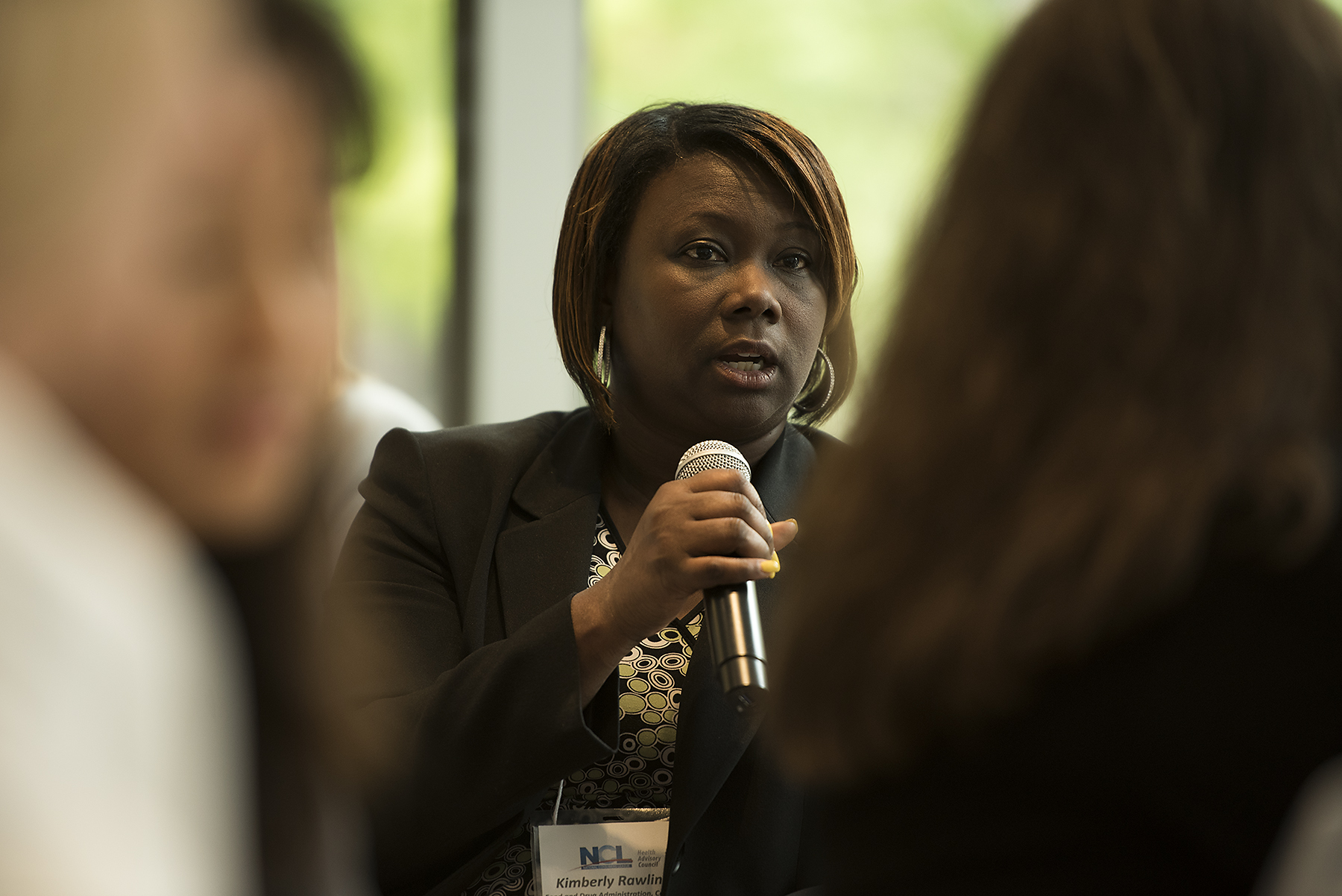
Information sharing from Health Advisory Council Members
Following the overview of NCL’s health programs, Health Advisory Council Members had the opportunity to share updates on their programs, priorities, and initiatives with each other. Please see the Q2 2018 Health Advisory Council Newsletter for a brief summary of member updates.
Closing remarks: Karin Bolte
Bolte thanked the Health Advisory Council Members for attending the meeting and for their continued support of NCL. She encouraged Members to support NCL’s Counterfeit Drugs Consumer Education Campaign, and to contact NCL with ideas and suggestions for future Council activities.












